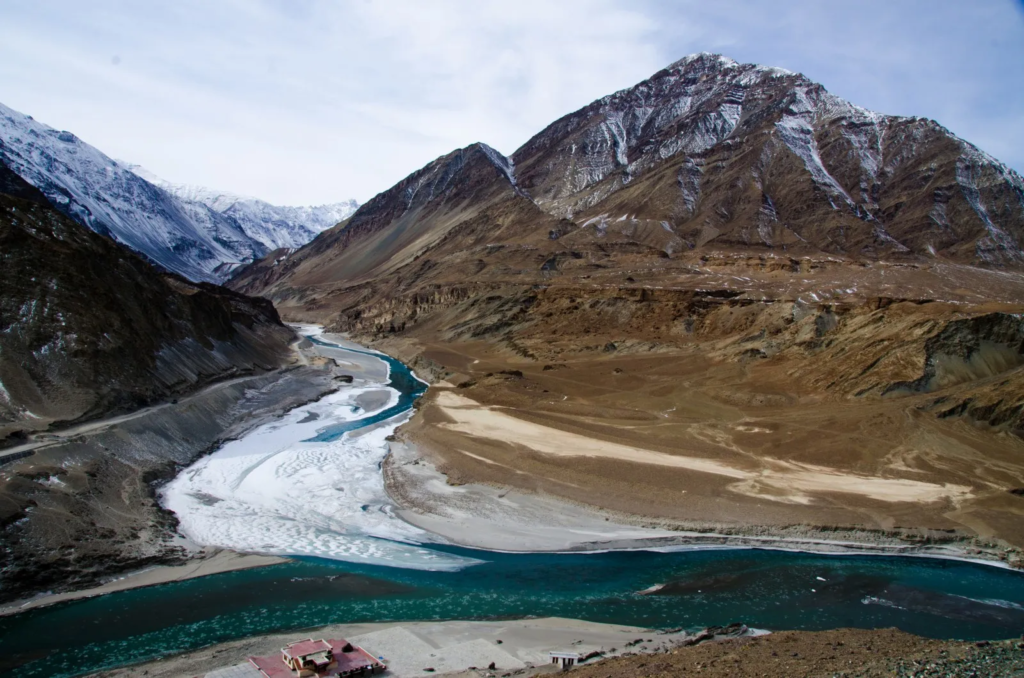
New Delhi / Beijing – July 18, 2025
Tensions between India and Pakistan have deepened over the Indus Water Treaty. The situation is now more serious as China has stepped in after a request from Pakistan for diplomatic support. Experts say China’s involvement could become a major concern for India, especially due to China’s control over Tibet, the origin point of many rivers flowing into South Asia.
Background of the Dispute
The Indus Water Treaty was signed in 1960 between India and Pakistan. It was brokered by the World Bank and has survived many wars and conflicts. Even after big military tensions, the treaty continued without interruption for 65 years.
However, things changed after the terror attack in Pahalgam, Jammu and Kashmir, on April 22, 2025, where several Indian soldiers lost their lives. In response, the Indian government decided to suspend the Indus Water Treaty.
India clearly said:
“Blood and water cannot flow together.”
Since then, both countries have been locked in a heated diplomatic battle over river rights.
Pakistan Turns to China
After India’s strong decision, Pakistan reached out to China for support. According to top sources, Beijing is now taking interest in the Indus water issue.
Reports suggest that Pakistani officials have asked China to raise this issue at international forums and support them through diplomatic pressure on India.
What Experts Are Saying
Many security and water policy experts believe this is not just a simple alliance. They say China could use this opportunity to create problems for India in the future.
An expert based in New Delhi said,
“China is trying to become a third player in an agreement that was always between India and Pakistan. This move is dangerous.”
Experts fear that China might start projects in Tibet to control or redirect river water. Since many rivers in India and Pakistan come from Tibetan glaciers, this could give China more power in the region.
China’s Growing Influence in South Asia
This is not the first time China has backed Pakistan in a sensitive matter. In the past, China has supported Pakistan at the United Nations and other global platforms, especially during military tensions with India.
Now, with water politics involved, China may use this issue as a tool to pressure India. It could raise the matter in international discussions and make India look isolated.
India’s Firm Stand
Despite global discussions, India has not changed its decision. Officials from New Delhi have confirmed that the Indus Water Treaty remains suspended until further notice.
The Indian government believes that terror and peace talks cannot go hand-in-hand.
If attacks continue, India will not go back to business as usual.
Sources say India is also planning new projects to divert Indus waters for irrigation and energy within its own territory.
China’s Role in Tibet May Be Key
One of the biggest concerns now is China’s control over Tibet. Tibet is the origin of several important rivers like the Brahmaputra, Indus, and Sutlej.
If China starts building dams or water projects in Tibet, it can change the flow of water towards India and Pakistan. This could lead to water shortage, flood risk, or other problems downstream.
Water experts say that any sudden change by China can impact millions of people in the region.
What Happens Next?
Right now, the situation is very sensitive.
India is focusing on internal water projects. Pakistan is trying to gather international support, and now China is showing interest.
The fear is that the Indus Water Treaty, once a model of peaceful cooperation, might now become a geopolitical weapon.
Experts are watching closely to see how India responds if China pushes forward with its plans.
Global Eyes on the Region
The international community is watching the situation closely. The United Nations, World Bank, and global water rights organizations may step in if tensions rise further.
But so far, India has not asked for any outside help. New Delhi believes that this issue is bilateral and should be handled directly between India and Pakistan.
Conclusion
With Pakistan seeking China’s help and China entering the scene, the Indus water issue is no longer just about water.
It is now part of a bigger power game in South Asia.
India has made its stand clear. Terrorism and treaties cannot go together. Pakistan, on the other hand, is looking for new support. And China is using the moment to increase its control in the region.
As this story unfolds, one thing is certain — water may become the next big reason for conflict, and countries must act wisely to avoid future disaster.
